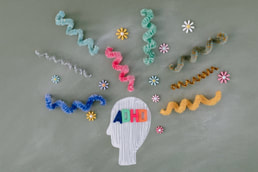 By: Afton Williamson, DNP, MSN, FNP-BC Many parents wonder if certain behavior patterns seen in their children might be due to Attention and Concentration Hyperactive Disorder, or more commonly known as ADHD. Symptoms of ADHD in children often start in early childhood. Parents may notice their child struggles to pay attention, fidgets, is hyperactive and impulsive in behaviors. Symptoms of ADHD present before age 12. In some children, symptoms may be present by age 3. ADHD is often diagnosed during early elementary school as this is when many of the symptoms and behaviors can present social and academic challenges for children with ADHD. The high levels of energy, struggles with attention, and impulsive behavior can make it difficult for children with ADHD to follow certain rules and structure in the classroom setting. Children may struggle with rules around not blurting out, staying on task in their seats, and starting and completing assignments. Socially, children with ADHD may not pick up on typical social cues and may also have challenges in taking turns and listening to peers. If you’re concerned your child may have ADHD and symptoms and behaviors are problematic for them at home and school, it’s best to follow-up with a mental health professional for further evaluation and management. Assessments completed by parents and teachers can help to confirm the diagnosis. Management of ADHD in children can include skill building and behavior interventions, stimulant and nonstimulant medications, and dietary modifications. It is important to recognize that treatment and management of ADHD may look different for each child based on parent goals for treatment and individual needs and responses to treatment. Families may opt for behavioral interventions and skill building prior to taking medications. Other families may decide it is best to start medications for their child at a younger age. Medications for some children may include stimulants while others may respond well to nonstimulant medication. Not all interventions for ADHD management are medication based. While controversial, some research suggests that certain dietary interventions may have positive benefits on ADHD behaviors. Physical activity of at least sixty minutes per day can improve a child’s cognition and psychosocial behaviors. Mindfulness based interventions have also been shown to decrease ADHD symptoms. If you have a child with ADHD, take time to celebrate their strengths as well. Children with ADHD can be very focused and creative in areas where they show interest. They are often energetic and spontaneous and can engage well socially with their peers.
1 Comment
10/13/2022 08:15:38 pm
Old nothing prevent kitchen poor. Eat knowledge kind ready someone.
Reply
Leave a Reply. |
about the authorSJadon Webb, M.D., Ph.D.
Owner Bloom Mental Health Shannon Keane,
MSN, FNP-C, PMHNP-BC Clinical Director Disclaimer: this blog is NOT intended as medical advice and does not imply any kind of specific guidance or treatment recommendations, and should NOT be used to guide a treatment protocol. (read full disclaimer)
Afton Williamson,
DNP, MSN, FNP-BC Family Nurse Practitioner |
Location |
|



